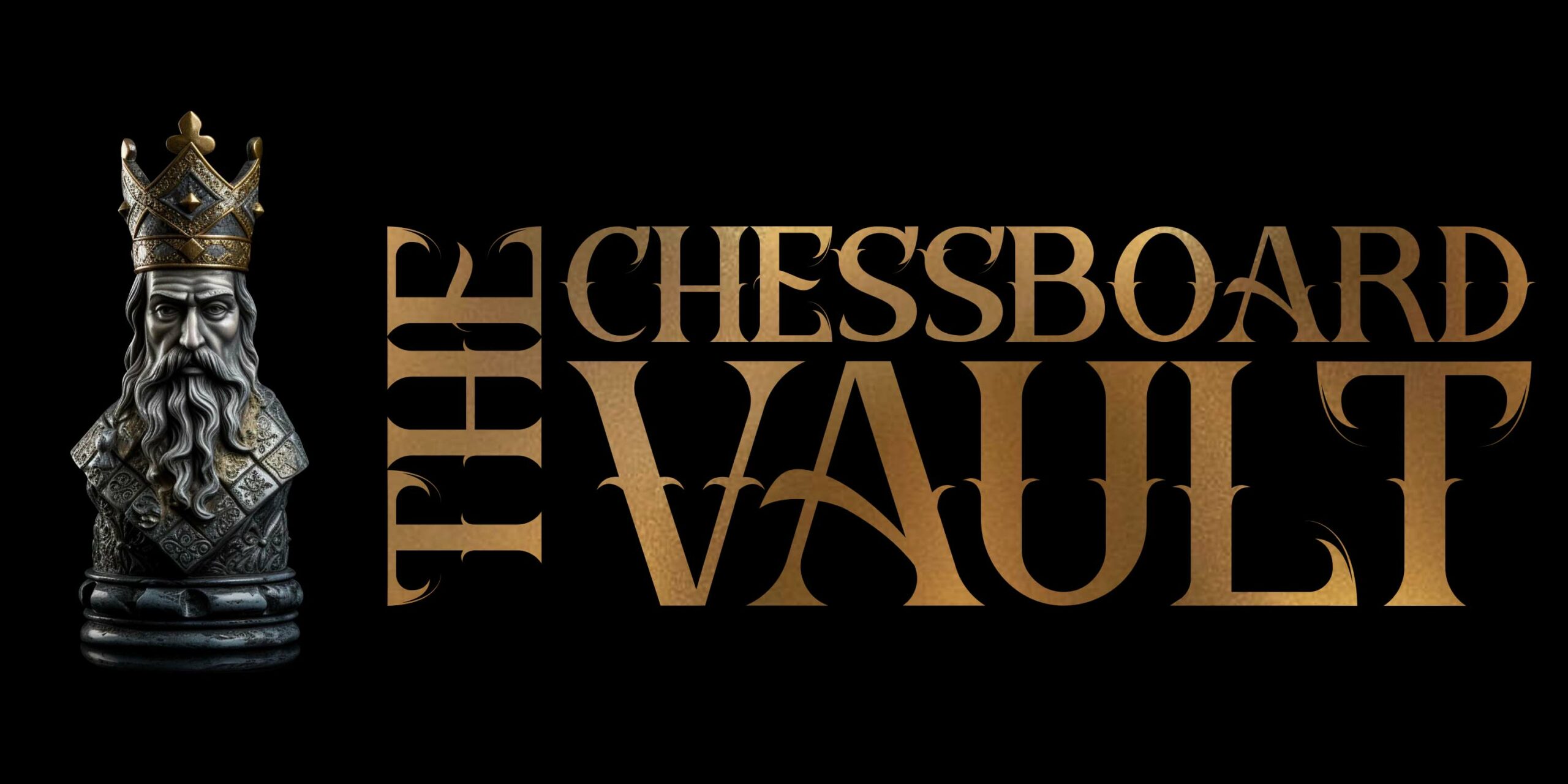What is Freestyle Chess?
Freestyle Chess is an exciting way to play chess that blurs the arrangement of pieces on the back row, allowing for a more creative style of play than conventional chess. Chess theory is set aside and players are left to their own devices from the very first move. This makes the games particularly interesting to watch. This concept was first popularized by Bobby Fischer in June 1996. That’s why it’s also known as Fischer Random chess or Chess960.
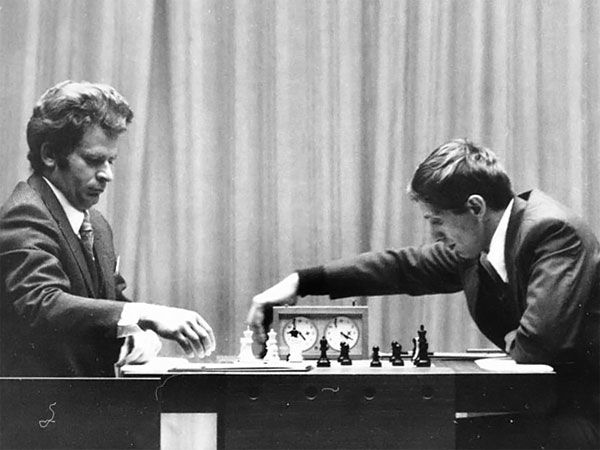
Spassky versus Fischer at the 1972 World Championship. Bobby Fischer is the man who popularized Chess960, now being renamed Freestyle Chess.| Photo: Icelandic Chess Federation.
Jan Buettner is a successful entrepreneur who has been involved in many successful projects. In February 2024, he launched the Freestyle Chess format with Magnus Carlsen, and the first tournament was held in Weissenhaus, Germany. Nine months after this first event, Jan raised $12 million from Left Lane Capital for the Freestyle Chess League.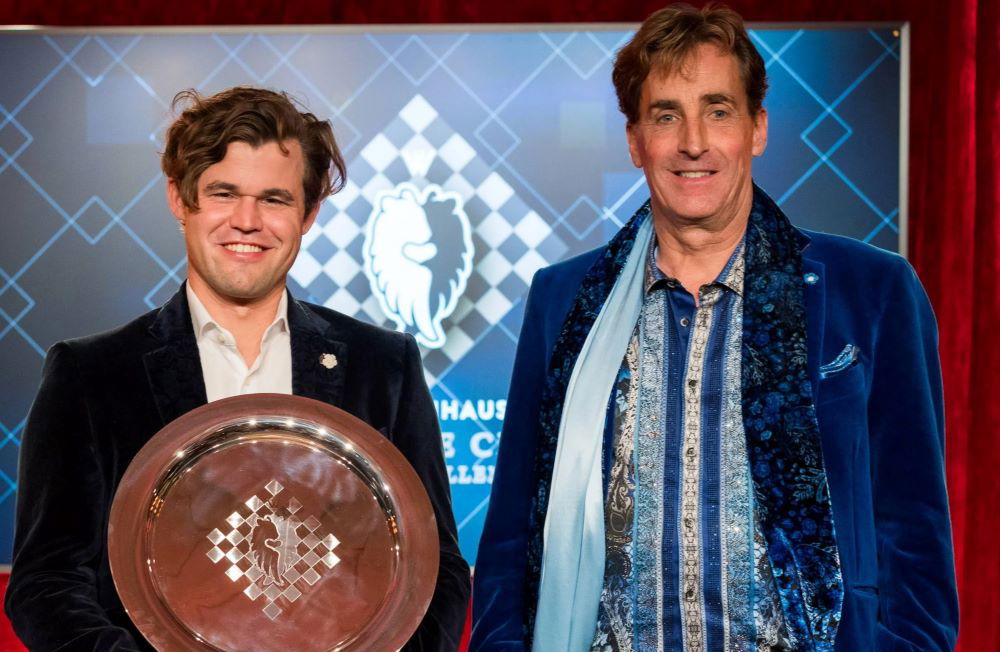
Freestyle catalysts: Magnus Carlsen and Jan Buettner. | Photo: Freestyle Chess.
In this interview with Sagar Shah, Jan explains how the funds were raised and what the future holds for Freestyle Chess:
Interview with Jan Buettner about Freestyle Chess | Video: ChessBase India.
Sagar Shah: Congratulations! It’s great that you and Magnus have raised $12 million for the Freestyle Chess Grand Slam. That was your goal, and now that it’s finally here… how do you feel?
Jan Buettner: It’s interesting to note that nine months have passed since I met Henrik and Magnus in Qatar. We discussed the idea on October 20 last year. So it’s like the birth of a child after nine months! (Laughs) You’ve been with us throughout this pregnancy, remember in February at Weissenhaus? After talking to many people, both good and bad, we finally found the right partners and friends. Today, we have a great set-up and a perfect connection between Magnus and the partners at Left Lane Capital. They’re the same age. They’re in their thirties.
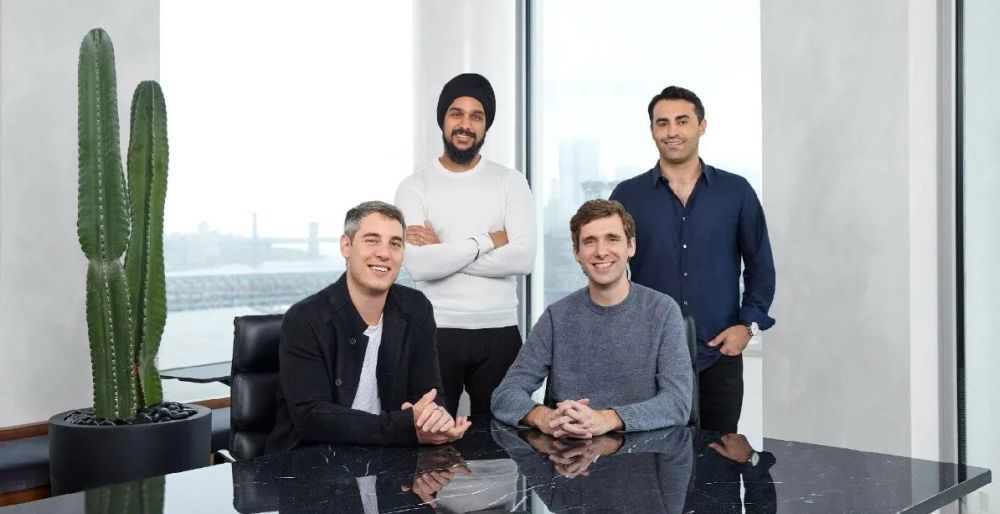
The Left Lane Capital team: le CEO – Harley Miller (bottom left) and three Managing Partners – Vinny Pujji (top left), Dan Ahrens (bottom right), Jason Fiedler (top right).
I met the Left Lane team in Brooklyn, then we flew together to Nashville to meet Magnus. Magnus started playing golf. Jason is a very good golfer. So they went to play golf together in Nashville. Harley and I said it was the first time we really regretted not playing golf! It would have been great to join them. We’ve established a strong connection and great spirit between us. We all believe in integrity and honesty, and we’re all friendly by nature, the likes of which you don’t see much in the world (laughs). We coordinated our press strategy with our team and Left Lane’s professional teams in New York and London. I’m obsessed with numbers. So I thought 24-07-24 was the ideal date for the announcement, for our newborn baby.
SS: I can imagine that the road from organizing the first event at Weissenhaus in February to finding partners and investors has not been an easy one. Could you tell us about that journey and how Left Lane Capital came to be close to you and Magnus?
JB: You’re a direct witness to everything. Nine months ago, Henrik, Magnus, Holly, my wife and I got together to discuss the idea. We also included Holly’s father, Torsten, who is very good with marketing and media agencies, who put everything together for the event at Weissenhaus.
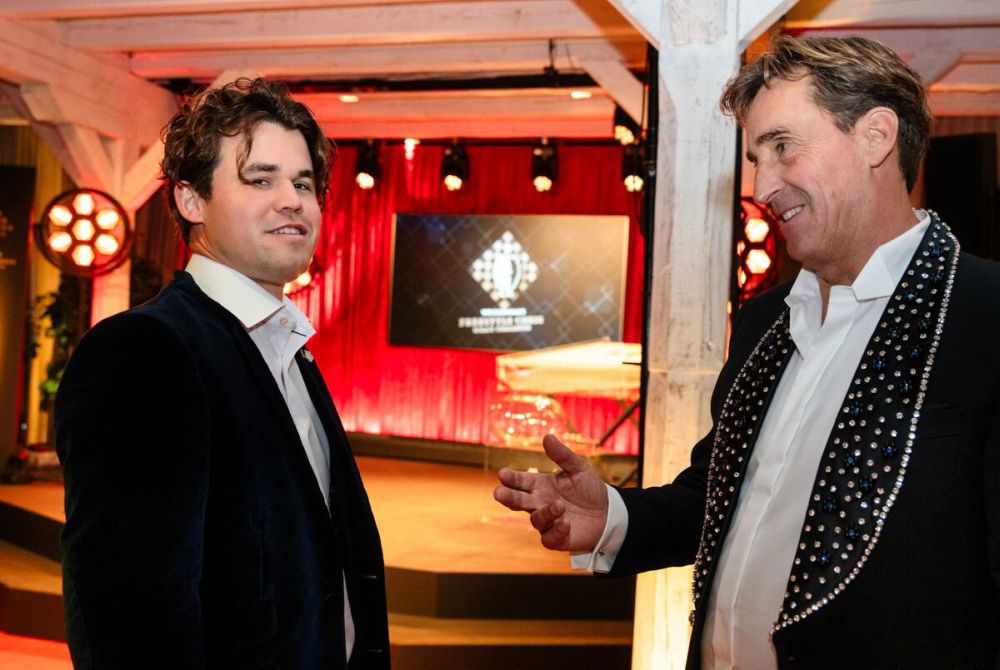
Something’s going on… | Photo: Maria Emelianova/Chess.com.
In October, having reached an agreement with Magnus and Henrik, we called Torsten and told him we had four months to organize the best chess tournament the world had ever seen, with the greatest chess players of all time. He replied: “We’ve only got three months because of Christmas and the vacations. But we can do it. It’s okay.” In those 12 weeks, we were in execution mode from scratch to what we accomplished. As everyone could see, we worked very well and delivered good quality results. Magnus and I didn’t have a contract at the time, but we agreed to do our best. It was crazy that the tournament got a billion impressions and views! The excitement grew every day throughout the tournament.
So I said to myself that we absolutely had to do it again. We’re going to hold another tournament in February. I thought we should extend the tour. Thanks to ChessBase India’s excellent coverage, we received a lot of interest from India. So we wanted to organize a tournament in India. Some potential parties contacted me. But instead of sponsoring the event, they all relaxed and said, “Let’s see what this guy does. Maybe he’ll come to India, maybe he’ll spend $2 million.” I didn’t want it that way. I didn’t want to rent a hotel in India and do the same thing, which would be much more difficult for Torsten and his team. So I said that if no one showed up, we’d do India at a later date.
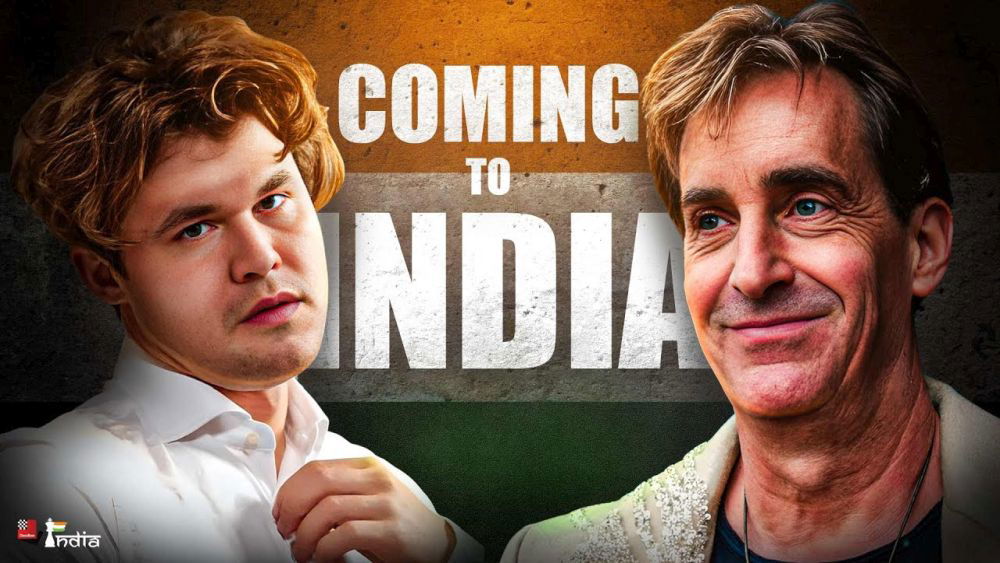
Freestyle chess won’t be coming to India anytime soon… but it will eventually!
We then piqued interest in the United States, which was the next interesting market for such a tournament. I’ve lived in California for 15 years and have a background in venture capital. I had a few contacts in this sector. We looked for financial partners who might be interested. We came across Left Lane Capital, a major venture capital fund with $2.5 billion in assets under management. Their strategy was to create new leagues, such as the highly successful King’s League in soccer, the Women’s League, and many others. They started in Spain, are currently focusing on South America and plan to be active in North America.
Our aim is to make each tournament profitable in its own right. So we’re looking for sponsors. But we’ve got broad shoulders because we don’t really need any. If we can’t find sponsors, we have enough money to organize a tournament on our own. What’s more, in addition to the $12 million we’ve raised, other people have already pledged $3 million. When you start something, people are very skeptical about the results, but when you get good results, more people want to join you. We saw Left Lane’s ambition and thought the idea of freestyle chess would fit perfectly into their strategy. It was like a perfect marriage. Holly and I spent the weekend with their team in East Hampton, at Harley Miller’s house. We all got on really well and felt like a family.
SS: This may be one of the first times someone has invested in a chess game with the aim of creating a sustainable business model. Are you confident in this venture? How do you see things and how will the money be made?
JB: I’m extremely confident, otherwise I wouldn’t be investing my time. I’m going to be 60 in six weeks’ time and I’ve had a lot of success in different sectors. So I don’t need a job or money, but I’m still enthusiastic about innovating and doing something that’s never been done before. Left Lane Capital wouldn’t have committed all this capital if I hadn’t agreed to stay for at least two years. Holly suggested that I could pass the baton to someone else, but Left Lane insisted that they needed to know who would be in charge. So I agreed to be CEO for two years without taking a salary, because I have enough money. During this period, my aim is to create a great platform for tournaments and make sure they’re all profitable.
Our goal is to organize high-level tournaments in exclusive venues. Our next tournaments will take place in New York and Cape Town, South Africa. We’re looking for venues with a certain scale. We prefer high-level connections. I’d rather have five billionaires connecting than thirty millionaires, if you know what I mean! We want to create an environment where people meet their peers.
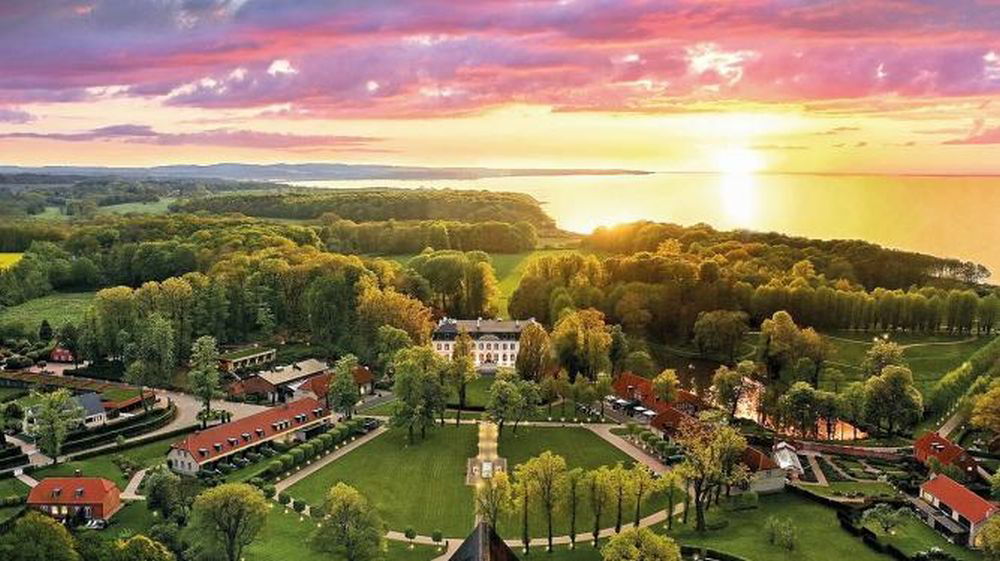
This was the venue for the Freestyle G.O.A.T. Challenge tournament in 2024. | Photo: weissenhaus.de
We’re also considering organizing themed events. For example, the political theme for a tournament in New York where key political leaders would meet us and relax. In another location, we could focus on the economy, culture or the arts, inviting people from these sectors. Our platform will showcase the world’s best players. Our goal is to put players in the spotlight. Of the $12 million raised so far, 30% will go directly to the players, which is unprecedented in the chess industry. For the three tournaments – Weissenhaus in February, New York in summer and Cape Town in winter – we will have an endowment of $750,000 each, and from 2026 we will increase the endowment of each event to $1 million.
SS: This amount is almost three times higher than that of the first edition of the event at Weissenhaus.
JB: Almost four times! With the exception of the World Championship itself, no other tournament allows players to win so much money. The winner will receive $200,000. We’ve allocated 85% of the prize money to the 10 participants. The remaining 15% will go to the 15 Players Club players who are not playing. So even if a player doesn’t play, but is part of our membership base with an ELO of at least 2725, he or she can still receive money. If his ELO falls below 2725 for 12 months, we can terminate his club membership. For those who are not among the 10 players, they can still earn an average of $7,500 per tournament without playing. If we organize four tournaments a year, that’s $30,000 just for being part of the club.
SS: That’s the advantage of belonging to this exclusive club of 25 players, isn’t it?
JB: Yes, we’ve set up a system whereby, of the 10 players taking part in each event, 5 players will always be the top 5 from the last tournament. So, for the next tournament, it will be Magnus, Fabiano, Levon, Nodirbek and Alireza. In addition, we have four places which we select on the basis of criteria outside the club, such as relevance to the local market. In Germany, for example, Vincent Keymer will be present. We also take into account performance and importance in the chess world. So, of course, we’ll have Gukesh again because he’s become an important player. In fact, we’ll have the same team as last time for these reasons. We’re still in talks with other players to fill the two remaining places. If someone is poorly ranked within our club, but has a large fan base and an outgoing personality, he’s more likely to be selected for the next tournament. Once they’re in the top 5, they’re always in the top 5. He’s an elite within an elite within an elite. We’re in talks with two players at this stage, but I don’t want to reveal that because the decision hasn’t been made yet. So we’ve got 9 players, and for 10th place we’ll have an open tournament where anyone can qualify. There will be online tournaments all over the world, and the final phase will take place face-to-face to avoid any cheating. The winner of this tournament will be awarded tenth place. I think it’s a good incentive, and players will be attracted by the game and the club.
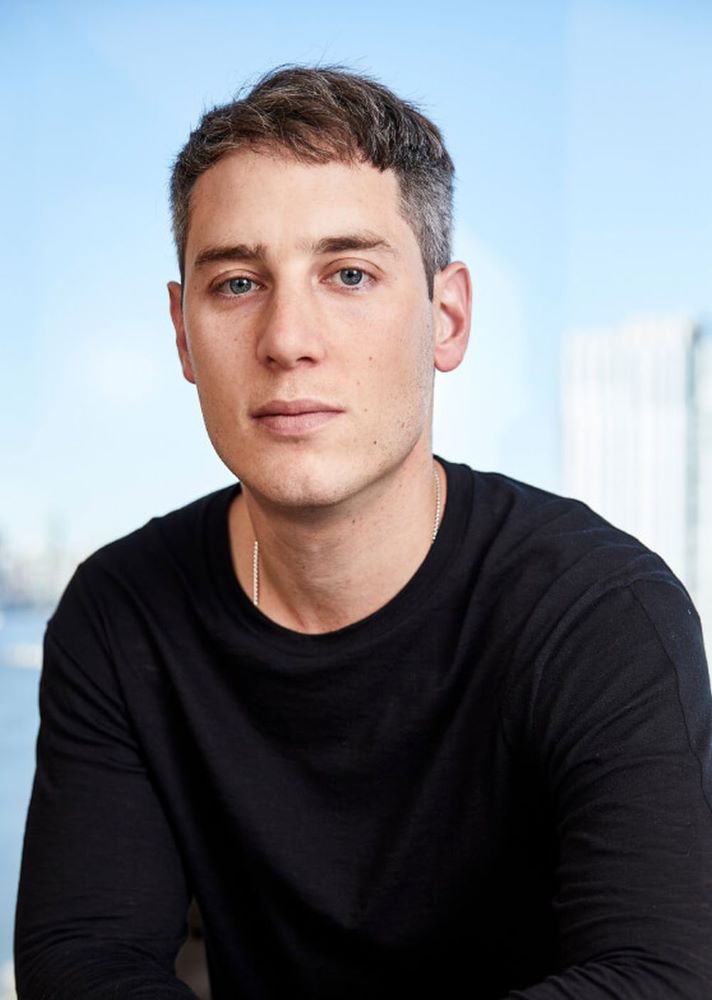
“Whenever the best athletes in the world compete at the highest level of play, combined with more cutting-edge storytelling and spectacle, you’re intrinsically building something very important.”-Harley Miller | Photo: Left Lane.
We’re already in talks with FIDE and chess.com to make sure we don’t disrupt the system. We’ll coordinate the dates so that they make sense for everyone and we can plan ahead. We’re also talking with Kevin (Goh Wei Ming) in Singapore and with FIDE about potential collaborations during the world championship match to show our friendly coexistence.
We are also in talks with external tournament partners. If someone wants to organize a tournament, I ask them to do it with a different approach following the McDonald’s model. That way, they’ll pay us a license fee and we’ll provide all the materials, marketing and support. But it’s up to them to take care of the organization. This is the model that will lead to the 4e and 5e tournaments next year. The prize money for these external tournaments will be $1 million for the players. I always want to put the players first.
We’re also setting up a marketing agency for the players, because we want them to have the same status as other stars in the sport. I’ve always wondered why Magnus Carlsen doesn’t have the same status as the best golfers or tennis players or the best sprinters in athletics. We’re going to offer all our club members a marketing arm, and I’m in talks with experts to run it. We’ll be looking for personal sponsors for them.
SS: You were very keen to organize something like the “Drive to Survive” series in chess. At the first event, Formula 1 was mentioned many times. Will this be part of the project?
JB: The idea of having colored jackets for the players was a big hit. Sometimes people don’t know the player’s name, but they recognize the colors. So they might say “the guy in the orange jacket” when referring to Alireza. I’ve been contacted by a number of clothing manufacturers, including some very big brands, who are interested in producing these jackets.
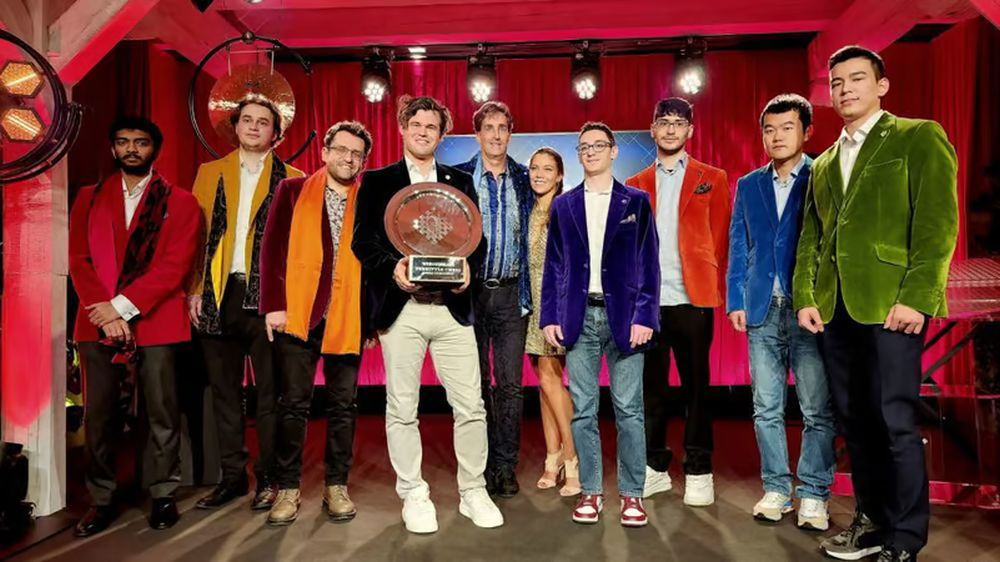
Players received jackets – supposedly… – according to their playing style and nature. | Photo: Freestyle Chess.
We also offer title sponsorships, because my idea is to have a title sponsor for every tournament. Suppose a sponsor provides $1 million for the prize board, we’ll market it as “Prizes provided by Company XY”. We have different sponsorship categories: clothing, cars, beverages, watches, and so on. Many companies can benefit, just like Formula 1.
As far as “Drive to Survive” is concerned, that’s obviously the goal. Netflix has had incredible success with this series. But Netflix doesn’t usually step in until success is achieved. So a series like “Drive to Survive” is possible in a year or two if we have real success. It would be great if Netflix saw the potential early on and covered us from day one, but even if they did, the season wouldn’t be out for another year or two. If we succeed by then, it will be without Netflix, and if we fail, Netflix won’t have saved us. So Netflix is a good idea, but it’s not essential. We’re expanding into media beyond just streaming, looking at television in general. We’re also working with FIDE; there’s a lot of room in this market for collaboration.
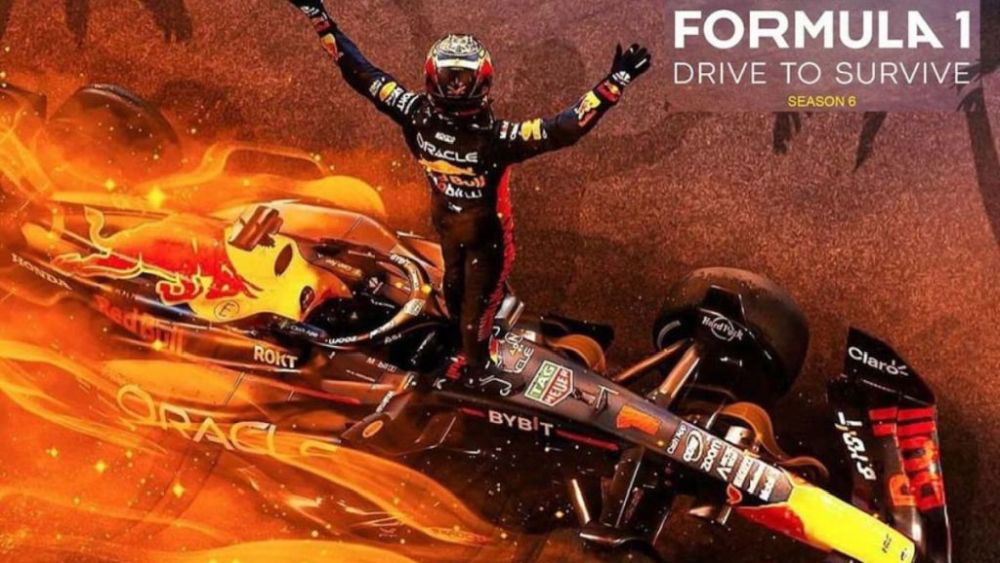
“Drive to Survive” is a behind-the-scenes documentary about the drivers and races of the Formula 1 World Championship.
We’re currently talking to several media outlets about a series we’re calling “The Hunted King”. The concept is that Magnus, the king, is being hunted by the nine challengers who want to oust him. We present this series and hope it will soon be a success.
SS: Can you tell us about your experience working with Magnus over the last nine months? Will Magnus participate exclusively in freestyle chess as far as classic time control is concerned, given that he owns part of this business?
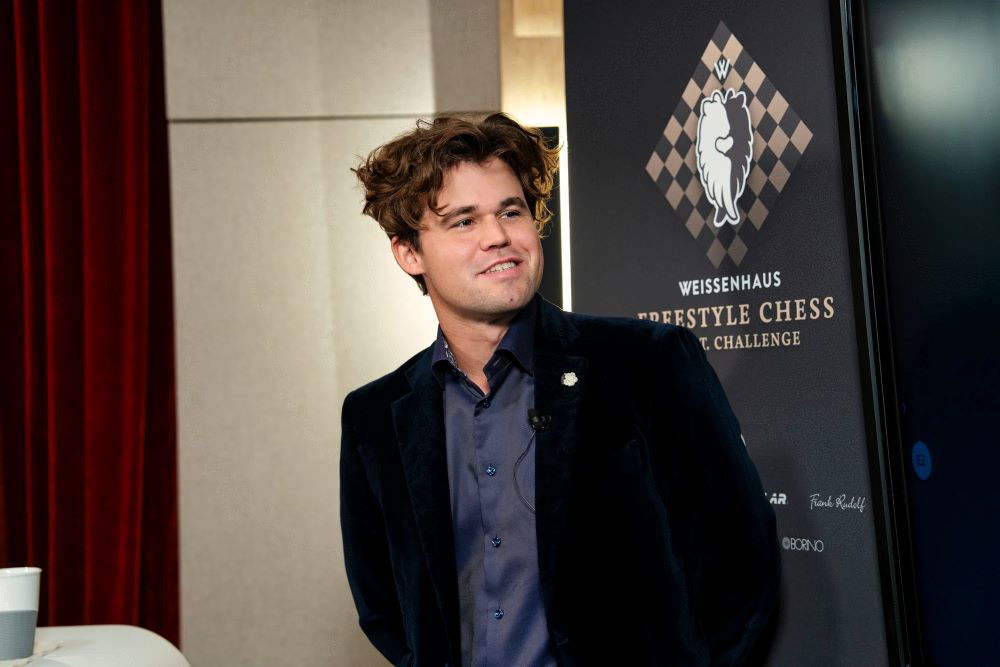
Magnus won the first Freestyle Chess Challenge in February 2024.
JB: First of all, I have to say that the whole Carlsen family is incredible. I felt terrible after I heard about Sigrun’s death. It’s such a terrible loss. I lost my mother at the age of 55. But it’s different when you lose your mother at 33. Sigrun was present at Weissenhaus.
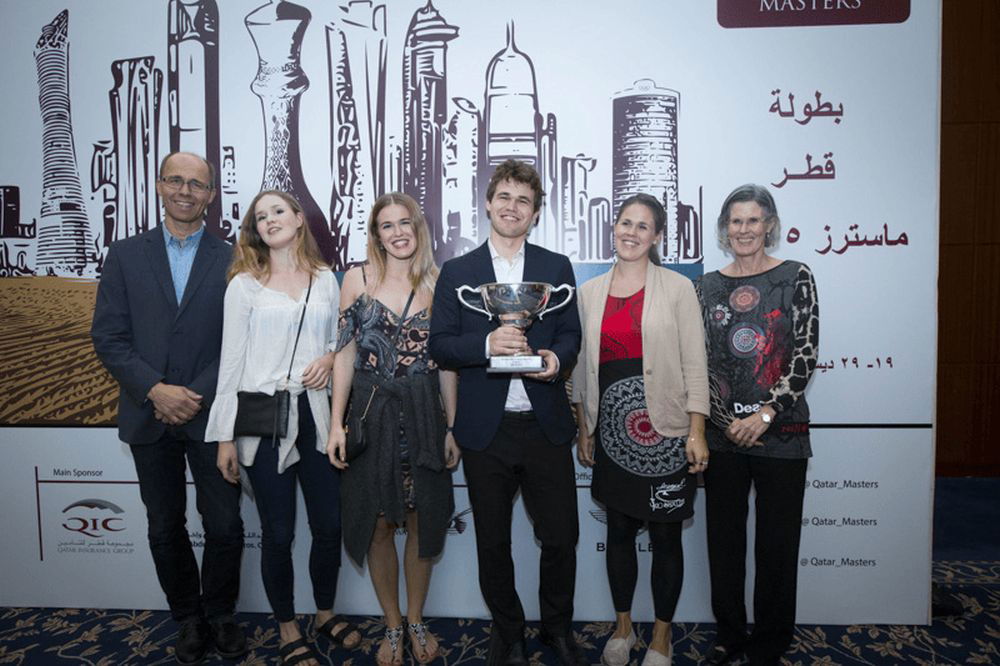
Magnus Carlsen with his family at the Qatar Masters – Photo: Maria Emelianova.
Magnus, of course, is a very humble person. With all he’s achieved, he could easily be arrogant, but he’s quite the opposite. Even though he owns part of this company, he doesn’t have to worry about the business. Our aim is to provide him with a platform that allows him to concentrate solely on the game. Although we’re close and have a lot to coordinate, we don’t talk every day. In general, I talk to Henrik and we only involve Magnus when we have to make a decision.
Left Lane’s condition was that I personally commit myself to the project for at least two years and that Magnus commit himself fully. In our meetings with Left Lane in Nashville, Magnus said this was the most important thing in his life right now. But we know that he has other tournaments and commitments, such as Norway Chess and the Global Chess League, and we don’t want to prevent him from participating in these tournaments. However, for Left Lane and for us, it was important for him to commit to this project because we’re building the whole league around him. It was his idea to play Fischer Random at the highest level with a standard thinking time. So this league is designed with him in mind. In the future, he could become the league commissioner. That’s something for his future, especially when he’s no longer actively playing. When he’s no longer the hunted king, but perhaps the retired king, this adventure will remain important to him.
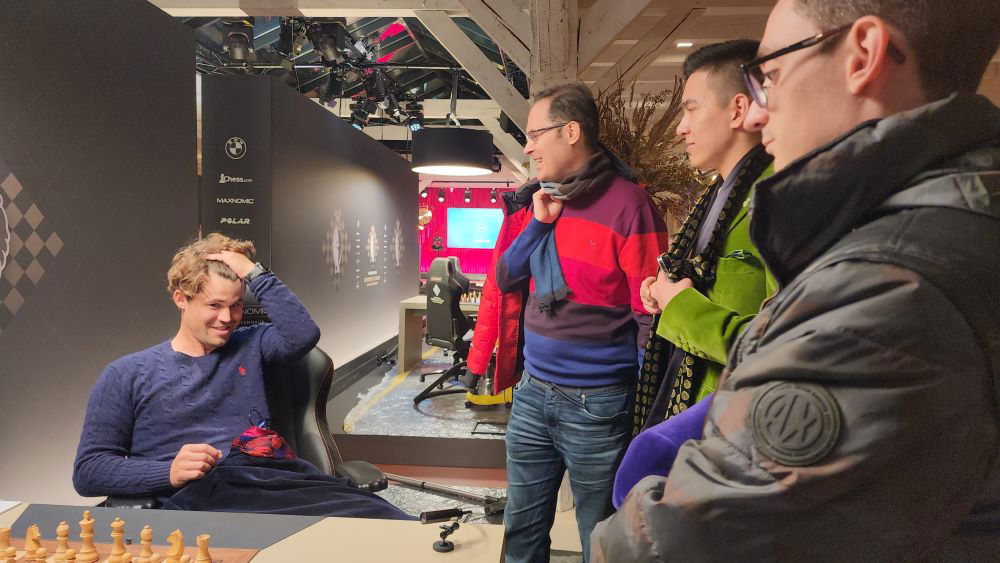
“The game of chess needs to evolve into a more dynamic and captivating spectacle, one that allows players to show their talents from the very first move!” – Magnus Carlsen on Freestyle.
SS: This is amazing! There are so many elements that came together: your time, Magnus’ involvement and Left Lane’s investment. It really feels like something extraordinary is happening in the chess world. I think everyone is going to be very excited about the way things are progressing.
JB: We’re going to have the time of our lives! We love life and we love everyone being friends and having a good time together. What could be better than taking on all these responsibilities and having the obligation to create the best events in the best places on the planet? It’s a fun and exciting journey!
SS: All eyes will be on Freestyle Chess to see how it evolves. I learned from you how to do great things with the ease of doing something every day. You made great announcements with such ease, and everything came from your heart. This sincere passion is evident as this project moves to the next stage. I wish you every success in your venture!
JB: Thank you, Sagar! I look forward to seeing you often in the future. I love India’s involvement. We’re going to do a lot together. I’m delighted that we now have the platform to do so. Thank you very much!
Magnus Carlsen on the development of a $12 million financing package
We interviewed Magnus at the end of the Rapid and Blitz 2024 World Team Championships in Astana, Kazakhstan, and here’s what he had to say about this development: “I was very excited about the first tournament that took place in Weissenhaus earlier this year and I think a lot of people liked it – both players and other people. Today, the financing of tournaments is a really good thing, and we’ll be able to organize some great events!”:
The interview with Magnus Carlsen at the end of the 2024 Rapid and Blitz World Team Championships.
